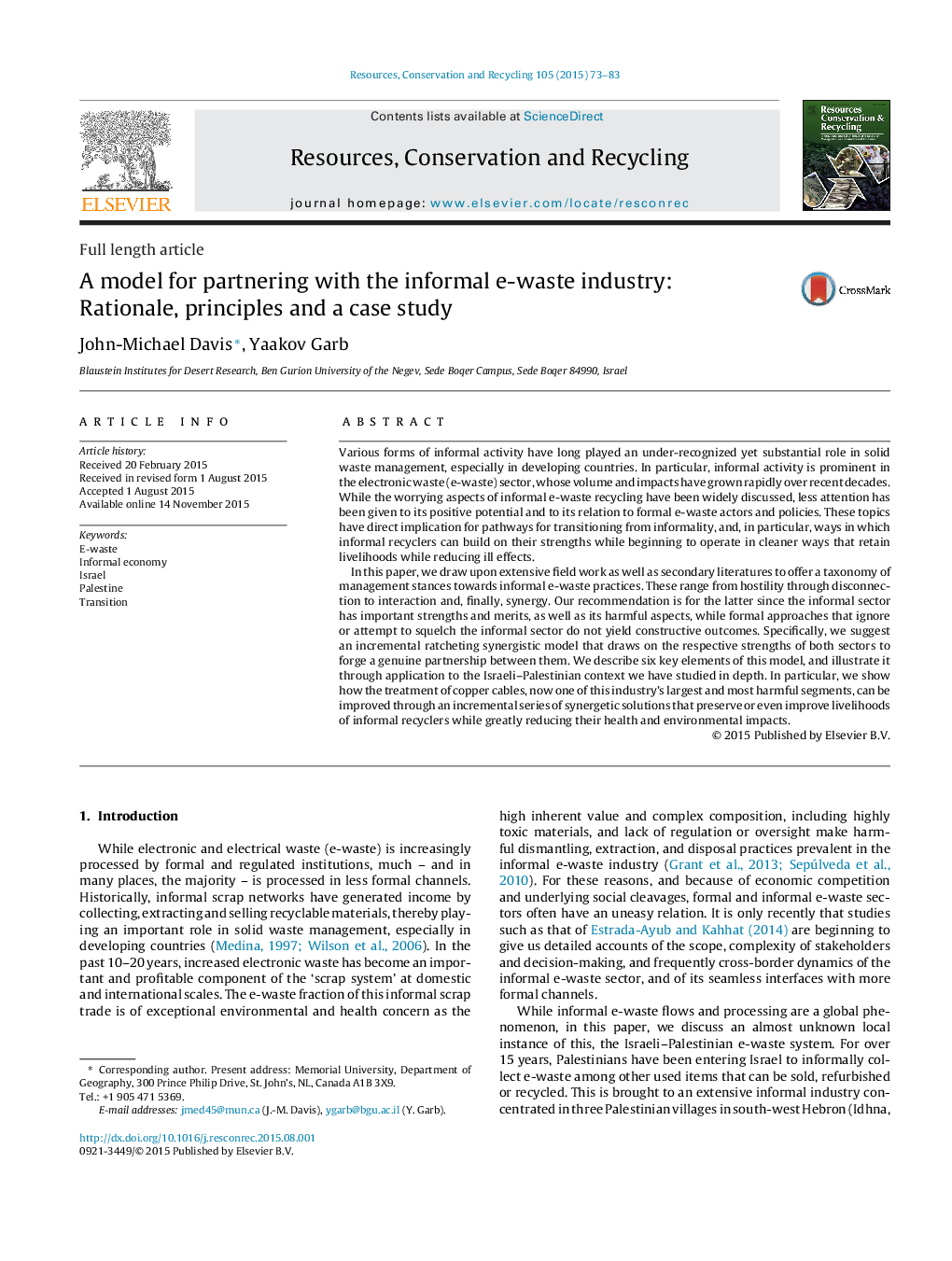| Article ID | Journal | Published Year | Pages | File Type |
|---|---|---|---|---|
| 10508052 | Resources, Conservation and Recycling | 2015 | 11 Pages |
Abstract
In this paper, we draw upon extensive field work as well as secondary literatures to offer a taxonomy of management stances towards informal e-waste practices. These range from hostility through disconnection to interaction and, finally, synergy. Our recommendation is for the latter since the informal sector has important strengths and merits, as well as its harmful aspects, while formal approaches that ignore or attempt to squelch the informal sector do not yield constructive outcomes. Specifically, we suggest an incremental ratcheting synergistic model that draws on the respective strengths of both sectors to forge a genuine partnership between them. We describe six key elements of this model, and illustrate it through application to the Israeli-Palestinian context we have studied in depth. In particular, we show how the treatment of copper cables, now one of this industry's largest and most harmful segments, can be improved through an incremental series of synergetic solutions that preserve or even improve livelihoods of informal recyclers while greatly reducing their health and environmental impacts.
Related Topics
Physical Sciences and Engineering
Energy
Renewable Energy, Sustainability and the Environment
Authors
John-Michael Davis, Yaakov Garb,
